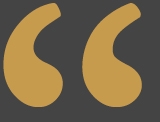pepper books publishing special
Mia, tourism, and pepper books publishing
An author’s take on tourism
This story partly illustrates how pepper book publishing could work while taking a critical look at the consequences of tourism.

This story was first published in the dot.book. by Charlie Alice Raya.
About two years ago, Mia returned to Águilas, her home town in the south of Spain.
Mia loved to walk to the castle ruins, sit down on the edge of the cliff and watch the vast Mediterranean sea.
But a lot had changed over the last decades.
She still remembered what this spot used to be like when she and her parents moved here, to a simple house in a quiet street, not very far from the sandy beach.
That was in a summer in the early nineties.
Even back then tourists came to Águilas, and there was already excited talk about a new hotel — big — a hotel that would attract so many more tourists.
Mia sighed.
She was in her forties now, but she still didn’t understand why Spain had to sacrifice its beautiful beaches to uglyfying high rises which made some people rich and reduced others to jobs in the tourism industry.
In Spain, you could study what you wanted, but most people would end up in tourism or agriculture, because for some reason the world had taken possession of Spain’s beaches and didn’t care a bit about the people who actually lived here, and who might have a lot more to offer than paella and room service.
Why had Spain allowed itself to be reduced to this?
Mia had been working as a teacher in Madrid when she saw an opening in a school here in Águilas — a place full of tickly memories. Her first great loves, both the location and — well, Samuel, who died in a motorboat accident some years ago.
Mia’s partner, Miguel, had been unhappy in Madrid, a city that would get so hot in the summer that it was hard to move. But since Miguel was a hotel manager, he easily found a job in Águilas, just for a season at first, but by now he had a permanent contract.
A few times in her life, Mia attempted to write, encouraged by her uncle, a journalist who travelled a lot. But Mia had never published anything.
Being back in this place, which was full of happy memories but at the same time tainted by the destructive thoughtlessness and greed of tourism, Mia started to write again, nearly every day.
After about a year, Mia compiled a collection of short stories, poems, random thoughts and questions.
And one day, she held the first complete printout of her collection in her hands, and a broad, happy, all consuming smile ran through her body.
And then Miguel burst the bubble by suggesting that she should self-publish.
Mia was so taken aback and hurt that she left the room, banging the door behind her. How could he be so cruel and basically tell her that she wouldn’t find a publisher?
Miguel followed her to the patio and said: ‘Darling, please hear me out. I love your work. I just had this idea. Listen, why go through all the hassle of finding a publisher when we know that your book is perfect for tourists, and since we know all the tradespeople and hotel people here in town, your book will be on offer in every place we know.’
‘For tourists?’ Mia snorted, still hurt, flopping down on the bench next to the aloe vera plant.
‘You know tourist. They like to hear a local perspective, they like to talk about it, and they like to feel important for knowing about it, so long as they don’t have to make any changes to their holiday plans or holiday habits. But Mia, if you want a publisher, then I’m with you all the way.’
This mollified Mia a little. And over the following months Miguel kept his word.
One evening, some three months later, Mia and Miguel had some couples and single friends over for dinner, and they were all eating and laughing a lot.
Later that night, Paco, one of Mia’s oldest friends, took her aside and told Mia about pepper books publishing and about book stations.
‘I might as well self-publish,’ Mia retorted frustrated, after months of receiving reject letters.
Mia had heard about pepper books publishing: stories from around the world, produced locally. But ‘What good is a publisher where everyone can publish?’
Paco put his hand on Mia’s shoulder. ‘Mia, I don’t know what you’ve heard. There are a lot of fake stories circulating on the net. But pepper is good. And if you register with them, there is no guarantee that they will accept your book, or if they accept this book, that they will accept the next one.’
‘How do you know that?’
‘Last month a book station opened in Murcia, and pepper is part of this book station. Plus, as of today I’m officially one of the book station’s illustrators.’
‘What? That’s excellent! I am so happy for you!’
‘Do you know what’s best? I only have to work part-time at the hotel from now on, and if the orders keep coming in, I might get out of the damn tourism business for good.’
Mia laughed, swung her arms around Paco, and kissed him on the cheek. ‘I can’t tell you how happy I am for you!’
Paco smiled and nudged Mia. ‘So, will you give them a try? I can give you a lift, next time I go to Murcia.’
‘I don’t know.’
‘Mia, a story isn’t good because a publisher says so. Publishers get it wrong often enough. A story is good when it stirs memories, thoughts, emotions, when the reader finds something to connect to, even to get excited about, or something that distracts them nicely. So it’s not the publisher, it’s the reader who elevates your story to something special. And I for one keep reading your book. It’s a treasure to me.’
Three days later, Mia finally took a look at the pepper books website.
What struck her at once was how different this website was from other book websites. Strangely it didn’t seem to be about selling books at all. There were no featured books, no bestsellers promoted, no assumptions made about what a reader might want — or should want.
There was a simple: A good day to you.
And below that there were three options: log in, use the filters, use a questionnaire. And below that was a field labelled: search from scratch.
Mia clicked on the filters and when a page full of inter-connectable buttons appeared, she laughed.
Paco had mentioned that the website was pretty cool. But this was better than cool. It seemed to Mia that not a single possible or impossible search option was missing.
You could, for example, search for a gay author from a Pacific region who writes about yellow doves, crossing the ocean, becoming a prince, (in) a mystic space, (which feeds of) the energies of the ocean’s waves. And this search actually got three results, though none matching all keywords.
Or you could search for an African author with royal ancestry who writes about white nuns, turning into warriors, (to) chase away colonialists.
And this option might lead you to ask, what about the Europeans? Are they finally writing some critical fiction about colonialism?
Or you feel like reading something that is both a crime story and a fairy tale. And funny enough you are not the only one who likes the idea, and you will get nearly two hundred suggestions on this search.
Or you could connect the button I am with the button in a with the button shitty mood and the button I don’t like with the button romance with the button I like and blue — and see what happens.
There seemed to be no end to the options and combinations you could try. And while you were at it, no one told you what others wanted, or what would supposedly be a related search — unless you wanted to know that.
After an hour or two, and quite a bit of laughing, Mia took a deep breath, and a little tentatively she typed into the field for search from scratch: tourism + Spain.
Three publications in Catalan appeared, two of which were also available in Spanish, and one of those was a crime story where a frustrated B&B owner in Barcelona poisoned his guests.
Mia extended the search to include Italy, Greece, Turkey and Tunisia, and got a longer list, including more crime stories, some love stories, some adventures, and some political stories.
There was one story from Greece about a girl who could communicate with Socrates, and Socrates was puzzled about all those people from foreign countries who travelled so far just for a spot on a beach.
The book description was carefully worded, but it still had a cheesy touch to it. Nonetheless, Mia was intrigued and clicked on the video: a live reading of the book’s first chapter, in English.
Bloody hell, this was good. Mia laughed more than once and realised that the author shared some of her experiences.
Intrigued, Mia kept searching, and in the end, she ordered six books, two of which had already reached the minimum order volume at the book station in Murcia.
A week later, Paco brought Mia three of the books. And he said: ‘Mia! Please, let me tell pepper about you.’
Mia smiled. ‘No. I want to read the books first.’
‘And then?’
‘If I like the books, then I will come with you to Murcia.’
And so, two weeks later, Mia slipped into Paco’s car, and her partner Miguel into the back, and they drove to the book station.
‘But this is a park,’ Mia exclaimed as they walked through the book-shaped gate.’
‘Didn’t I say? The book stations are meant to be places where humans and nature coexist.’
Mia shook her head. ‘And these pavilions … Are these people over there rehearsing?’
‘Yes. There’s a theatre further back.’
They came to the central building, a large, round(-ish) building with tiers of green terraces, and plants growing up or down the different levels. They walked past the main entrance, and then past doors with labels like: illustrators, translators or admin.
And then they stopped — in front of the door marked: pepper books authors.
Mia swallowed.
‘Ready?’ Paco asked.
Mia shook her head.
‘Mia, you’ll be fine.’
Five minutes later, they sat in a room that looked like a lounge, not like an office, and they talked to Jimena.
Another two hours later, Mia had answered all questions, filled in all forms, and sat with Miguel and Paco in the book station’s tapas bar.
Paco raised his glass and said: ‘Mia, next time we sit here, we will celebrate.’
Mia smiled and shook her head. ‘Don’t say that. How long do you think it will take until they contact me?’
‘One week, two weeks, three weeks? It will happen. I love your book, and I’ve read enough books for my judgement to count for something.’
It was close to two weeks later when the letter from pepper books publishing arrived.
Dear Mia,
we hope that our response won’t discourage you, but we want to be honest with you.
We all agree that your book is a gem. And we would be happy to publish your book and offer it on our website.
However, your book won’t be easy to sell. Your style and the composition of your book are very special, and your subject is very specific, even though it resonates with the works of some of our authors.
Saying all this, we would like to work with you. We just don’t want you to get your hopes up too much.
If you still want to work with us, then there are some promotional ideas we would like to run by you.
To start with, we like the idea your partner Miguel brought up of printing a special edition of your book for the hotels and shops in Águilas.
Secondly, we are thinking about making a little feature about you, Paco, the book station, introducing Águilas and the Murcia region — and interviewing others who have made similar experiences.
Thirdly, we would like to suggest that you and Paco work together on the cover and on the illustrations for your book, and we would like to organise an exhibition, maybe with additional works of local photographers, painters and other visual artists, but with a focus on the collaboration between you and Paco, old friends who love Águilas. This exhibition could then move to other towns along the coast and that would be another opportunity to sell your book in a special edition.
You will have noticed that all of these ideas focus on the local market, but we would document everything on your public author’s profile, and we hope that this will create some interest in other parts of Spain and in other countries.
And a final idea for today. The impact of tourism is increasingly a sour point for communities, and several authors in Mediterranean countries are addressing the issues involved. Therefore we are considering to organise something like a festival or a symposium or both on the subject.
The letter ended with a warm greeting, and the hope that Mia would become a pepper books author even though the odds were against bigger sales.
It took Mia some days to digest all the information and the ideas, but eventually she told pepper books publishing that she was in.
It was already September and the tourist crowd changed its face from bustling, sunburned drunk to elderly tourists going on walks, not so loud, not so suffocating but still strangers who didn’t really understand that they were guests, not members of the community, and that yes, the food here was different.
By now, Paco was working in his new studio in Águilas. It was small, but it had a perfect view of the sea, and the ice-cream parlour was on the ground floor.
In autumn and winter, Mia and Paco worked together a lot and added 24 illustrations to Mia’s book.
At the beginning of the Easter Season Mia’s book was available everywhere in Águilas, and the opening of the exhibition was a great success.
It took another two years until the first editions of Mia’s book were printed outside of Europe. By then, a group of authors from Mediterranean countries had come together to write about their visions for tourism, and their dreams for their coasts.

Home
I want to call it home.
It is my home.
But strangers flood the bars, the streets, the beaches,
like it was their home.
They dance, they puke, they bawl.
I’m sick of them.
I’m sick of serving those who come here
ignorant, thoughtless
not knowing the first thing
about my home.
My home.
We have become slaves to the masses of tourists,
who burn their white bodies on our beaches.
Who are stupid
without shame
Who demand
without consideration.
If they were guest …
— but they are not.
They think they have a right to be here.
To be in my home.
Mia’s book
Example from: dot., the book, by Charlie Alice Raya.
For more about pepper books publishing see the book stations tour: What about publishers and the following pages.
For more on dot. which provides the underlying business model see the dot.website.
You can buy the dot.book on the dot.website.

